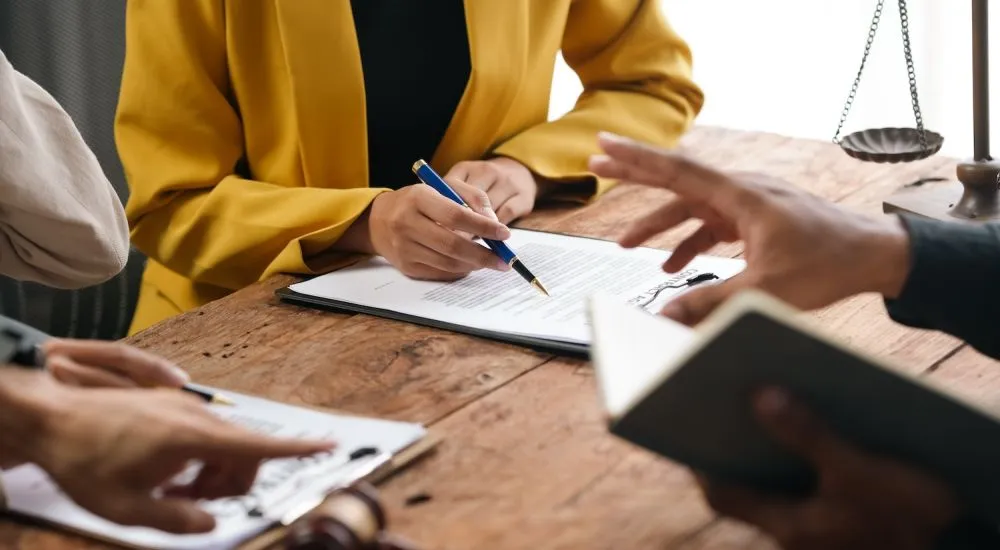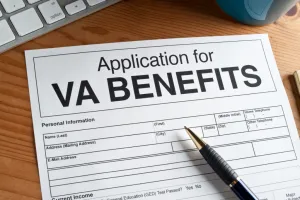Your Free Consultation With a Local Lawyer: A Prep Checklist
- account_circle admin
- calendar_month Sen, 1 Sep 2025
- visibility 152
- comment 0 komentar

Your Free Consultation With a Local Lawyer: A Prep Checklist
Unlock Your Legal Future: Your Essential Prep Checklist for a Free Consultation with a Local Lawyer
KlikBabel.com – Your Free Consultation With a Local Lawyer: A Prep Checklist. Facing a legal challenge can feel overwhelming. You’re not alone, and thankfully, many local lawyers offer free initial consultations to help you navigate your situation. This invaluable opportunity allows you to get expert advice without immediate financial commitment. But to make the most of this crucial meeting, preparation is key. This comprehensive checklist will ensure you arrive informed, focused, and ready to empower yourself with the knowledge you need.

Your Free Consultation With a Local Lawyer: A Prep Checklist
Why is Preparation So Crucial for Your Free Consultation?
Think of your free consultation as your first step towards resolving your legal issue. A well-prepared client allows the lawyer to quickly grasp the core of your problem, offer more targeted advice, and determine if they are the right fit for your needs. As highlighted by leading legal resources, a prepared client demonstrates seriousness and respect for the lawyer’s time, often leading to a more productive and insightful session.
Your Essential Prep Checklist:
1. Define Your Legal Issue Clearly:
- What is the core problem? Be as specific as possible. Instead of “I have a problem with my neighbor,” try “My neighbor’s dog barks incessantly from 7 AM to 10 PM daily, disrupting my sleep and work.”
- What outcome are you hoping for? Do you want to stop a behavior, recover damages, or achieve a specific legal resolution?
- When did the issue begin? Pinpointing the timeline is vital for legal cases.
2. Gather All Relevant Documents:
This is arguably the most critical step. Bring everything related to your case, even if you’re unsure of its relevance. This could include:
- Contracts and Agreements: Lease agreements, employment contracts, purchase agreements, loan documents.
- Correspondence: Emails, letters, text messages, social media messages exchanged with the other party.
- Photographs and Videos: Visual evidence can be incredibly powerful.
- Financial Records: Bank statements, invoices, receipts, pay stubs.
- Court Documents: Any existing legal filings or orders.
- Witness Information: Names and contact details of anyone who witnessed key events.
3. Create a Chronological Timeline of Events:
- Organize the facts of your case in chronological order. This helps the lawyer understand the progression of events and identify key dates and actions.
- Note down dates, times, locations, and who was involved in each significant event.
4. Prepare a List of Specific Questions:
- Don’t rely solely on the lawyer to guide the conversation. Come prepared with your own questions.
- Examples:
- What are my legal rights and options in this situation?
- What is the typical process for a case like mine?
- What are the potential costs involved?
- What is the likelihood of a successful outcome?
- What is your experience with similar cases?
5. Understand Your Lawyer’s Fee Structure (Even for a Free Consultation):
- While the consultation is free, inquire about their hourly rates, retainer fees, and any other associated costs should you decide to hire them. Transparency is key.
6. Be Honest and Forthright:
- Your lawyer is bound by attorney-client privilege. Therefore, it’s essential to be completely honest about all aspects of your case, even the unfavorable ones. Withholding information can significantly hinder your lawyer’s ability to represent you effectively.
7. Consider the Lawyer’s Specialization:
- If you have a specific legal issue (e.g., family law, real estate law, personal injury), seek out a lawyer who specializes in that area. This ensures you’re getting advice from someone with deep expertise.
8. Take Notes:
- Bring a notebook and pen, or a laptop, to jot down important points, advice, and action items discussed during the consultation. This will help you remember key details later.
9. Manage Your Expectations:
- A free consultation is an initial assessment. The lawyer may not be able to provide definitive answers or a complete legal strategy on the spot. Their goal is to understand your situation and offer preliminary guidance.
10. Trust Your Gut:
- Beyond legal expertise, consider how comfortable you feel with the lawyer. Do they listen to you? Do you feel heard and understood? A good rapport can be crucial for a successful attorney-client relationship.
Frequently Asked Questions (FAQ):
Q1: What should I expect during a free consultation with a lawyer?
A free consultation is typically a meeting where you explain your legal problem to a lawyer. The lawyer will ask clarifying questions to understand the facts, assess your situation, and provide an initial overview of your legal rights, potential options, and the general legal process involved. They may also discuss their experience with similar cases and their fee structure if you decide to proceed with hiring them.
Q2: Do I need to bring anything to a free legal consultation?
Yes, it’s highly recommended to bring all relevant documents pertaining to your legal issue, a chronological timeline of events, and a list of specific questions you want to ask. Being prepared with this information will allow the lawyer to better understand your case and provide more accurate and helpful advice.
Q3: How long does a free consultation with a lawyer usually last?
The duration of a free consultation can vary, but it typically lasts between 30 minutes to an hour. It’s best to confirm the expected length with the law office when you schedule your appointment.

- Penulis: admin












Saat ini belum ada komentar